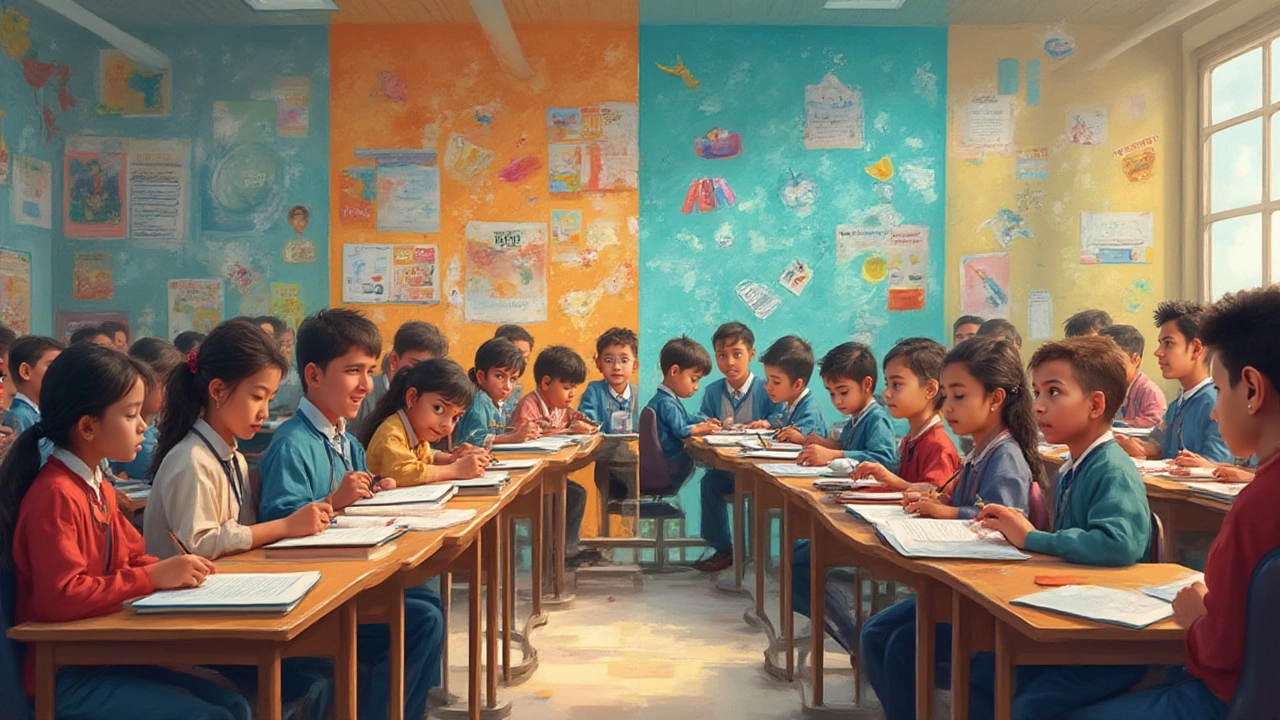CBSE vs ICSE: What’s the Real Difference?
If you’re a parent, student, or teacher in India, you’ve probably heard the debate: CBSE or ICSE? Both boards claim to offer the best education, but they actually focus on different things. Below we break down the core points so you can see which one fits your goals without getting lost in jargon.
Curriculum and Assessment
CBSE (Central Board of Secondary Education) follows a national framework designed by the government. It emphasizes a streamlined syllabus, clear concepts, and a strong focus on Science, Mathematics, and Competitive Exams like JEE and NEET. The board uses a mix of objective (MCQ) and descriptive questions, but the final exams are mostly short‑answer and multiple‑choice, which many students find easier to score in.
ICSE (Indian Certificate of Secondary Education), run by the Council for the Indian School Certificate Examinations, takes a broader approach. Its syllabus is richer in English language, literature, and humanities. The assessments include long‑answer, case‑study, and project‑based questions. This can develop analytical writing skills but also means more study time for each subject.
In terms of grading, CBSE follows a 100‑point system with moderate weightage on internal assessments. ICSE also uses a 100‑point scale but gives higher marks for internal work, projects, and practicals. If you enjoy continuous evaluation and a varied portfolio, ICSE might feel more rewarding.
Choosing the Right Board for Your Child
Think about your child’s future plans. If they aim for engineering or medicine, CBSE’s alignment with JEE and NEET syllabi can give them a head start. The board’s emphasis on problem‑solving and rapid revision suits tough competitive exams.
On the other hand, if your child loves literature, social sciences, or wants a solid foundation in English, ICSE’s deeper content can be a better match. The board’s focus on detailed answer writing also helps when applying for universities abroad that value comprehensive essays.
Location matters too. CBSE schools are more common across India, especially in smaller towns, making it easier to find a nearby campus. ICSE schools tend to be clustered in major cities and often charge higher fees because of the extensive resources they provide.
Finally, consider the teaching style you prefer. CBSE’s structured, exam‑oriented approach works well for disciplined, routine learners. ICSE encourages creative thinking and project work, which can be great for students who thrive on exploration.
Bottom line: there’s no one‑size‑fits‑all answer. Look at your child’s strengths, career goals, and the school environment available to you. Both boards produce successful professionals; the key is matching the board’s strengths to the student’s needs.
Got more questions about CBSE vs ICSE? Browse our related articles on syllabus details, exam tips, and school selection to make an informed decision today.
Feb
20

- by Dhruv Ainsley
- 0 Comments
Which board is the toughest in India? CBSE vs ICSE vs State Boards compared
ICSE is widely considered the toughest school board in India due to its detailed syllabus, strict grading, and emphasis on critical thinking. CBSE is more exam-focused, while state boards vary by region. The real challenge isn't the board-it's the support behind it.
Jul
28

- by Dhruv Ainsley
- 0 Comments
Best Education Board for Future Success: CBSE, ICSE, IB, or State Board?
Confused about which school board paves the best path for future opportunities? Unpack the real differences between CBSE, ICSE, IB, and State Boards.